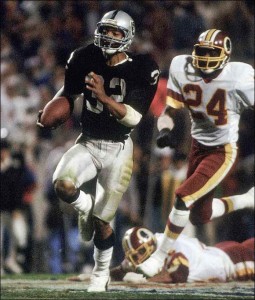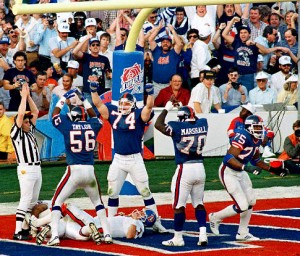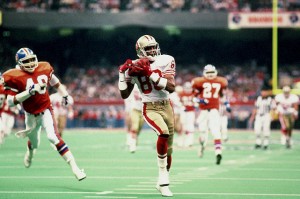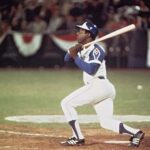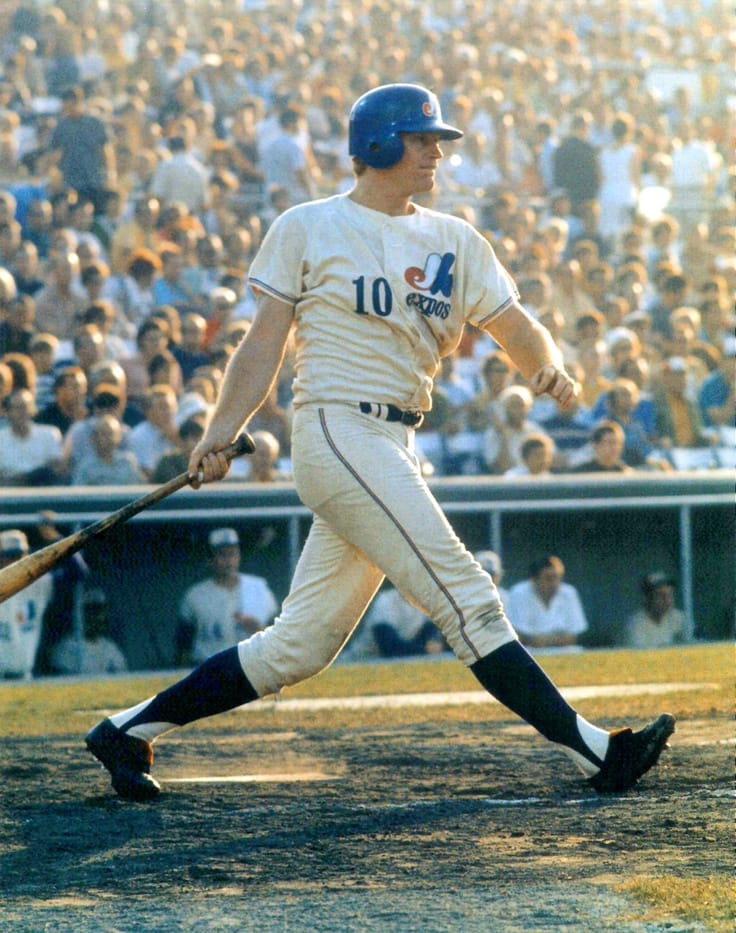The Top 20 Super Bowl Champions of All-Time

Despite not having a Hall of Fame caliber quarterback, the Washington Redskins clearly ranked as the best of the 44 Super Bowl Champions.
Since the first Super Bowl was held in January 1967, 44 teams have hoisted the Vince Lombardi Championship Trophy. But which of these championship teams was really the greatest of the greats?
In part two of our countdown of the Super Bowl Champions, we count down to the number one champion in Super Bowl history. For more details about the categories used to rank the teams, check out part one.
20. 1977 Dallas Cowboys – Record: 15-2 (32 points); Average loss by 11 points (9 points); Average win by 14.6 points (23 points); Opponent winning percentage: .485 (29 points); Wins over +.500 teams: 4 (25 points); Total Points: 118
Arguably the best of Tom Landry’s 29 Dallas Cowboy squads, the 1977 Cowboys combined an explosive offense led by Roger Staubach, Drew Pearson and rookie Tony Dorsett with a dominating defense led by linemen Randy White and Harvey Martin. Dallas finished 12-2 during the regular season with their two losses coming back-to-back after winning their first eight games. In the Playoffs, Dallas out-scored the Chicago Bears and Minnesota Vikings by a combined score of 60-13 to reach the Super Bowl. Facing the Denver Broncos in Super Bowl XII, the Cowboys were dominant in a 27-10 victory.
19. 1990 New York Giants – Record: 16-3 (26 points); Average loss by 8.7 points (20 points); Average win by 11.4 points (9 points); Opponent winning percentage: .500 (36 points); Wins over +.500 teams: 4 (28 points); Total Points: 119
Because the 1990 New York Giants narrowly won the NFC Championship Game over the San Francisco 49ers and then had to withstand a last second missed field goal to win Super Bowl XXV, the Giants are often overlooked when the best championship teams are discussed. However, the second of Bill Parcell’s Super Bowl teams was a solid team led by a defense that allowed the fewest points in the NFL. After starting quarterback Phil Simms was lost for the season in the 14th week, backup Jeff Hostetler stepped in and did not throw an interception in three playoff wins.
Which Was the Best Single Season NFL Team in the Super Bowl Era?
- 1985 Chicago Bears (18-1) (26%, 21 Votes)
- 1972 Miami Dolphins (17-0) (20%, 16 Votes)
- 2004 New England Patriots (17-2) (10%, 8 Votes)
- 1984 San Francisco 49ers (18-1) (10%, 8 Votes)
- 1978 Pittsburgh Steelers (17-2) (10%, 8 Votes)
- 1966 Green Bay Packers (14-2) (7%, 6 Votes)
- 1991 Washington Redskins (17-2) (5%, 4 Votes)
- 1998 Denver Broncos (17-2) (5%, 4 Votes)
- 1977 Dallas Cowboys (15-2) (4%, 3 Votes)
- 1989 San Francisco 49ers (17-2) (4%, 3 Votes)
- 1992 Dallas Cowboys (16-3) (1%, 1 Votes)
- 1976 Oakland Raiders (16-1) (0%, 0 Votes)
Total Voters: 82
18. 1998 Denver Broncos – Record: 17-2 (33 points); Average loss by 7.0 points (31 points); Average win by 15.8 points (28 points); Opponent winning percentage: .453 (14 points); Wins over +.500 teams: 3 (14 points); Total Points: 120
After finally breaking out to win the Super Bowl the previous season, in 1998 the Denver Broncos came out hot and won their first 13 games before suffering back-to-back defeats. Though 38-year old quarterback John Elway was in his final season, he did still have some magic left and was named to the Pro Bowl. Running back Terrell Davis was at the peak of his career and rushed for 2,008 yards. Though known for their offense, the Broncos did finish eighth in the league in points allowed. After easily dismissing the Dolphins and Jets in the playoffs, they defeated the Atlanta Falcons 34-19 in the Super Bowl.
17. 1988 San Francisco 49ers – Record: 13-6 (1 point); Average loss by 8.3 points (21 points); Average win by 13.5 points (17 points); Opponent winning percentage:.512 (40 points); Wins over +.500 teams (41 points); Total Points: 120
Though the 1988 San Francisco 49ers were the first team with six losses to claim the Super Bowl title, the challenging road that led them to the Super Bowl resulted in a higher overall ranking than many teams with better records. They played eight games against teams with a winning record and were victorious in six of those contests. The .512 overall winning percentage of their opponents ranks as the fifth highest for any Super Bowl champion. The 49ers were dominant in their two NFC playoff games as they outscored the Vikings and Bears by a combined total of 62-12. The Super Bowl against the Cincinnati Bengals was a much tougher game as it took a 92-yard drive in the final minutes for the 49ers to claim a 20-16 victory.
16. 1983 Los Angeles Raiders – Record: 15-4 (9 points); Average loss by 6.8 points (32 points); Average win by 13.6 points (19 points); Opponent winning percentage: .496 (33 points); Wins over +.500 teams: 4 (27 points); Total Points: 120
The 1983 Los Angeles Raiders were an explosive team that scored 20 or more points in every game during the season and scored 30 or more points in each of their three playoff games. Quarterback Jim Plunkett wasn’t spectacular, but had 20 touchdown passes to lead the aerial attack. Marcus Allen rushed for 1,014 yards and also caught passes for another 590 yards during the season. After twice losing to the Seattle Seahawks during the regular season, they were able to defeat Seattle 30-14 in the AFC Championship Game to reach the Super Bowl. Facing the defending champion Washington Redskins, the Raiders blew open what was expected to be a close game with some big plays during the second quarter. Marcus Allen cemented the victory with a 74-yard touchdown run as the Raiders won 38-9.
15. 1978 Pittsburgh Steelers – Record: 17-2 (39 points); Average loss by 5.0 points (34 points); Average win by 13.3 points (14 points); Opponent winning percentage: .449 (13 points); Wins over +.500 teams: 4 (20 points); Total Points: 120
During their first two Super Bowl victories in 1974 and 1975 the Pittsburgh Steelers were known more for their defensive prowess and running game. By 1978 Terry Bradshaw and the passing game had developed into another valuable weapon for the Steelers. In 1978 Terry Bradshaw tossed a career-high 28 touchdown passes and was named first team All-Pro for the only time in his career. Receiver Lynn Swann also had career-highs with 61 catches, 880 yards and 11 touchdowns. When combined with the great running of Franco Harris and Rocky Bleier, the Steelers had a dynamic offense that ranked fifth in the league in scoring. However, the foundation for the team was again defense as they led the NFL in points allowed and during the regular season held six opponents to single digits. They dominated Denver 33-10 and the Houston Oilers 34-5 to reach the Super Bowl. They then withstood a late rally to defeat the Dallas Cowboys 35-31.
14. 1993 Dallas Cowboys – Record: 15-4 (10 points); Average loss by 9.3 points (14 points); Average win by 15.2 points (26 points); Opponent winning percentage: .496 (35 points); Wins over +.500 teams: 5 (38 points); Total Points: 123
After winning the Super Bowl a year earlier, the Dallas Cowboys got off to a slow start in 1993 as they dropped their first two games while running back Emmitt Smith sat out in a contract holdout. He returned for the third game and Dallas went on to win 12 of their final 14 games. Smith rushed for 1,486 yards and led the NFL in rushing for the third straight year despite missing those two games. Defensively, the Cowboys ranked second in the league in points allowed as their opponents scored 20 or more points in a game only three times. After dispatching the Packers and 49ers in the NFC Playoffs, the Cowboys overcame a halftime deficit to defeat the Buffalo Bills 30-13 in what would prove to be the final game with Jimmy Johnson as their head coach.
13. 1995 Dallas Cowboys – Record: 15-4 (12 points); Average loss by 8.0 points (23 points); Average win by 14.4 points (22 points); Opponent winning percentage: .496 (34 points); Wins over +.500 teams: 5 (37 points); Total Points: 128 points
The 1995 Dallas Cowboys ranked third in the NFL in both points scored and points allowed. The triplets of running back Emmitt Smith (1,773 yards), Michael Irvin (111 catches, 1,603 yards) and Troy Aikman (64.8 completion %, 16 touchdowns) were all at the peak of their careers. The addition of Deion Sanders to the defense made an already solid defense even stronger. After defeating the Eagles and Packers in the NFC Playoffs, Dallas romped past the Pittsburgh Steelers 27-17 to claim their third title in four seasons.
12. 1975 Pittsburgh Steelers – Record: 15-2 (30 points); Average loss by 8.0 points (24 points); Average win by 17.0 points (33 points); Opponent winning percentage: .469 (19 points); Wins over +.500 teams: 4 (22 points); Total Points: 128
After losing to the Buffalo Bills in the second week of the 1975 season, the Pittsburgh Steelers claimed 11 straight wins before dropping their regular season finale to the Los Angeles Rams. After splitting time the two previous seasons, Terry Bradshaw started every game at quarterback in 1975 and earned his first Pro Bowl trip while tossing 18 touchdowns and only 9 interceptions. Pittsburgh allowed the second fewest points in the NFL and held half their opponents to under 10 points. In the playoffs, they defeated the Baltimore Colts and Oakland Raiders before edging the Dallas Cowboys 21-17 in the Super Bowl.
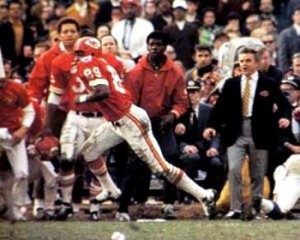
Otis Taylor and the 1969 Kansas City Chiefs removed any lingering doubts that the AFL was on-par with the NFL.
11. 1969 Kansas City Chiefs – Record: 14-3 (20 points); Average loss by 4.0 points (38 points); Average win by 17.6 points (38 points); Opponent winning percentage:.477 (24 points); Wins over +.500 teams: 3(16 points); Total Points: 136
A year after the New York Jets proved the AFL could win a Super Bowl, the Kansas City Chiefs left little doubt that the AFL was equal to the NFL. The Chiefs went 11-3 during the regular season with two losses coming to the Oakland Raiders. Overall, their three losses were by a total of only 12 points. On the other hand, they were dominating their opponents as their average margin of victory was 17.6 points and they won six games by 20 or more points. After defeating the defending champion Jets in their opening playoff game, the Chiefs avenged their earlier losses to Oakland to reach the Super Bowl for the second time. This time Hank Stram’s squad was ready as they dominated the Minnesota Vikings 23-7 to claim the Super Bowl crown.
10. 1984 San Francisco 49ers – Record: 18-1 (42 points); Average loss by 3.0 points (39 points); Average win by 17.1 points (34 points); Opponent winning percentage: .418 (5 points); Wins over +.500 teams: 4 (19 points); Total Points: 139
When looking only at winning percentage and average margin of victory and defeat, the 1984 San Francisco 49ers rank right at the top among all Super Bowl champions. However, when other factors are considered, the 49ers get downgraded due to the .418 winning percentage of their opponents, which ranks as the fifth lowest of all Super Bowl champions. Regardless, it is hard not to consider the ’84 49ers among the top teams of all-time given that their only loss was by three points to a Pittsburgh team that reached the AFC title game. In the playoffs, the 49ers defeated the Giants 21-10 before shutting out the Bears 23-0. In the Super Bowl, the San Francisco defense, which had ranked number one in the league during the regular season, completely shut down Dan Marino and the high-flying Dolphins in a 38-16 domination.
9. 1979 Pittsburgh Steelers – Record: 15-4 (13 points); Average loss by 14.5 points (5 points); Average win by 17.2 points (35 points); Opponent winning percentage:.527 (44 points); Wins over a +.500 team: 7 (44 points); Total Points: 141
Of all the Super Bowl champions, none has ever played a tougher schedule or had more wins over a team with a winning record than the 1979 Pittsburgh Steelers. However, they fall just short of being considered the best champion ever primarily because they suffered two blowout losses during the season. They were defeated 34-10 by a Bengals team that finished 4-12 and then lost 35-7 to the San Diego Chargers. For that reason, their average losing margin of 14.5 points ranks as the fifth worst among Super Bowl champions. Quarterback Terry Bradshaw tossed 26 touchdown passes, but also threw 25 interceptions during the year. Franco Harris rushed for 1,186 yards and John Stallworth caught 70 passes for 1,183 yards. The defense slipped slightly from previous years as they ranked fifth in the league in points allowed, but they were still unquestionably one of the best units in the league. After defeating Miami and Houston in the AFC playoffs, they rallied to defeat the Los Angeles Rams 31-19 to claim their fourth Super Bowl title in six years.
8. 1973 Miami Dolphins – Record: 15-2 (31 points); Average loss by 9.0 points (18 points); Average win by 17.6 points (37 points); Opponent winning percentage:.474 (22 points); Wins over +.500 teams: 5 (35 points); Total Points: 143
While the undefeated 1972 Miami Dolphins were downgraded based on the caliber of their opponents and inability to dominate in their victories, the 1973 Dolphins earned much higher marks in all those areas. Though they lost twice, the Dolphins claimed five wins over teams with winning records (compared to two in 1972) and the .474 winning percentage of their opponents was significantly better than the previous year. In 1973 the Dolphins allowed their opponents only 10.7 points per game and held half their opponents to single digits. Offensively, the duo of Lary Csonka (1,003 yards rushing) and Mercury Morris (954 yards) was difficult to contain. Quarterback Bob Griese averaged only 17 pass attempts per game and tossed 17 touchdown passes with just 8 interceptions.
7. 1986 New York Giants – Record: 17-2 (35 points); Average loss by 4 points (36 points); Average win by 13.3 points (15 points); Opponent winning percentage:.475 (23 points); Wins over +.500 teams: 5 (36 points); Total Points: 145
It is sometimes difficult to consider the 1986 New York Giants to be on par with their contemporaries the 1984 49ers and the 1985 Chicago Bears, but when all factors are considered, their overall performance was equal or better to both of those teams that are often in the conversation for being the best team of the Super Bowl era. The Giants were second in the NFL in scoring defense and eighth in scoring offense. Their two losses came by a combined total of eight points. The Giants were as dominant in the playoffs as just about any team ever as they whipped the 49ers 49-3 before shutting out the Washington Redskins 17-0. In Super Bowl XXI, they overcame a stubborn Denver Broncos team to win 39-20.
6. 1985 Chicago Bears – Record: 18-1 (43 points); Average loss by 14 points (7 points); Average win by 19.7 points (41 points); Opponent winning percentage:.473 (21 points); Wins over +.500 teams: 5 (34 points); Total Points: 145
Many consider the 1985 Bears to be the best single season team of the Super Bowl era, but when all factors are considered they fall a bit short. The Bears were known for their defense and did finish first in the NFL in allowing the fewest points and yards. However, they often are not given proper due for their offense, which ranked second in the league in scoring offense and seventh in total yards. Walter Payton rushed for 1,551 yards to lead the number one rushing offense in the league. Jim McMahon was known for his flamboyance, but the tough quarterback could also throw the ball and teamed with Willie Gault and Dennis McKinnon to give Chicago a passing offense that opponents had to account for. After shutting out their first two playoff opponents, the Bears allowed the Patriots just 10 points in a dominating 46-10 Super Bowl victory.
5. 1966 Green Bay Packers – Record: 14-2 (29 points); Average loss by 2.0 points (43 points); Average win by 14.8 points (24 points); Opponent winning percentage:.459 (17 points); Wins over +.500 teams: 5 (33 points); Total Points: 146
Even 45 years after winning the first Super Bowl, the 1966 Green Bay Packers still rank as one of the best teams in Super Bowl history. They lost only twice in 1966 by a total of four points. Though some of the stalwarts of their earlier championship team, most notably running backs Jim Taylor and Paul Hornung, were starting to show age, the Packers still had the best defense in the NFL and the fourth highest scoring offense. Perhaps the greatest strength for the Packers in 1966 was their pair of cornerbacks Herb Adderley and Bob Jeter. The Packers allowed the fewest passing yards in the NFL. Green Bay was the only Super Bowl Champion squad to play only one playoff game to reach the Super Bowl as they edged the Dallas Cowboys 34-27 in the NFL Championship Game. In the first Super Bowl, they broke open a close game in the second half to defeat the Kansas City Chiefs 35-10.
4. 1996 Green Bay Packers – Record: 16-3 (27 points); Average loss by 11.0 points (10 points); Average win by 20.5 points (44 points); Opponent winning percentage:.504 (37 points); Wins over +.500 teams: 4 (29 points); Total Points: 147
Perhaps one of the biggest surprises of this ranking is that the 1996 Green Bay Packers scored high enough to crack the top five. Despite facing the eighth toughest schedule of all Super Bowl teams, the Packers had the highest margin of victory during their victories as they outscored their victims by 20.5 points per game. The Packers were one of those rare teams that had the highest scoring offense in the league while allowing the fewest points in the NFL. After a pair of mid-season losses dropped the Packers to 8-3, they rolled off five straight wins to close the regular season with a 13-3 mark. They then dominated the San Francisco 49ers and Carolina Panthers to reach the Super Bowl. Their 35-21 victory over the New England Patriots was closer than the score would indicate, but it was still a great win for the Packers.
3. 2004 New England Patriots – Record: 17-2 (37 points); Average loss by 7.5 points (28 points); Average win by 13.4 points (16 points); Opponent winning percentage:..492 (32 points); Wins over .500 teams: 7 (43 points): 156
Of the three championship teams for the New England Patriots during the 2000’s, the 2004 squad faced the toughest schedule, but still managed to register a 14-2 regular season record and win the Super Bowl. The Patriots ranked fourth in the NFL in scoring offense and second in scoring defense. They scored 20 or more points in all but one game while limiting six opponents to single digits. Running back Corey Dillon gave the Patriots a strong runner to balance the passing attack of Tom Brady. The Patriots held Peyton Manning and the Colts to only three points in their opening playoff game before out-scoring the Steelers 41-27 in Pittsburgh to reach the Super Bowl. They held off the Philadelphia Eagles 24-21 to claim their third Super Bowl in four years.
2. 1989 San Francisco 49ers – Record: 17-2 (34 points); Average loss by 2.5 points (41 points); Average win by 17.3 points (36 points); Opponent winning percentage: .457 (16 points); Wins over +.500 teams: 6 (39 points): Total Points: 166
After winning the Super Bowl the previous year, the 1989 San Francisco 49ers were unquestionably on a mission to become the first team in a decade to win back-to-back Super Bowl titles. The 49ers opened the season with six road games during the first eight weeks, but won each of those games on their way to finishing undefeated on the road. They ranked first in the NFL in scoring offense and third in scoring defense. Joe Montana tossed 26 touchdowns while throwing just eight interceptions. The receiving duo of Jerry Rice and John Taylor was virtually unstoppable. Led by Charles Haley and Pierce Holt, the defense registered 42 sacks and 21 interceptions. They plowed through the playoffs defeating the Vikings 41-13, the Rams 30-3 and then in Super Bowl XXIV crushed the Broncos 55-10.
1. 1991 Washington Redskins – Record: 17-2 (38 points); Average loss by 2.5 points (42 points); Average win by 19.2 points (40 points); Opponent winning percentage:.504 (38 points); Wins over +.500 teams: 6 (40 points); Total Points: 198
The 1991 Washington Redskins may not have been one of the more glamorous teams in football history, but when you crunch the numbers it is very clear that they were the best of the 44 teams that have lifted the Vince Lombardi Trophy. What is surprising is that the numbers aren’t really close as they finished with 32 more points than the second place team. The Redskins had no weakness among the five categories as they finished no worse than seventh in any of the five categories. It may seem strange that Mark Rypien was the starting quarterback of the best Super Bowl team ever, but he actually had an amazing year in 1991 with 28 touchdowns and 11 interceptions. He culminated his season by being named MVP of the Super Bowl. The Redskins had the number one offense and number two defense in the NFL. Running back Earnest Byner cracked the 1,000-yard mark and Gary Clark was the explosive receiver with 70 catches for 1,340 yards and 10 scores. Charles Mann was the top rusher on a defense that sacked the quarterback 50 times. After defeating the Atlanta Falcons and Detroit Lions by a combined score of 65-17 in the NFC Playoffs, the Redskins scalped the Buffalo Bills 37-24 to claim the Super Bowl Championship.
